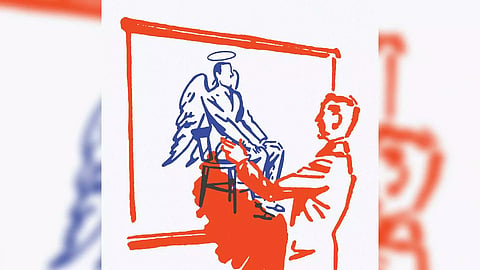

In high school I memorized a scene from “Hamlet” in which the gloomy prince tries to persuade his mother to leave the usurper king, the brother of Hamlet’s murdered father. “Assume a virtue, if you have it not,” Hamlet implores Gertrude. And a few lines later: “Refrain tonight, / And that shall lend a kind of easiness / To the next abstinence: the next more easy; / For use almost can change the stamp of nature.” The idea that “use almost can change the stamp of nature” is embedded in economics, although I didn’t appreciate it in high school. “Virtue is an acquired practice,” the Nobel economics laureate James Heckman, Bridget Galaty and Haihan Tian wrote in a working paper released last month by the Becker Friedman Institute at the University of Chicago. They added that this acquired practice “may eventually become the dominant preference of agents in the sense that it influences behaviors.”
I’ll wager that’s exactly how Hamlet would have put it if he’d received graduate training in economics instead of kicking around a castle in Denmark. Virtue is usually seen as the province of religion, ethics, philosophy or psychology, but Heckman and his co-authors wrote that economics “provides a framework for giving precision and empirical content to the study of virtue ethics.” They show how that framework can be applied to “specific interventions designed to promote personality and cognition.”
In “Meno,” a Socratic dialogue by Plato, Socrates expressed the idea that virtue is not taught but rather a gift of God, the working paper said. Aristotle disagreed with Socrates in a way that made him a kindred spirit of modern economics. He (like Hamlet) believed that virtue could be acquired. “Interpreting Aristotle through the lens of an economic model is both provocative and fruitful for philosophy, psychology and economics,” the authors wrote in the working paper, which is boldly titled “The Economic Approach to Personality, Character and Virtue.” I should pause and acknowledge that scholars in fields adjacent to economics — not to mention those not adjacent — aren’t always happy when economists step on their turf. It happens a lot because economists perceive their tools as being broadly applicable. Gary Becker, also a Nobel laureate from the University of Chicago, was famous for applying economic thinking to marriage, crime, addiction and discrimination.
The risk for economists as interlopers is that they won’t appreciate the contributions that other kinds of scholars have already made and will try to force economic analysis into places it doesn’t belong. Heckman is at least aware of that risk. The working paper credited two University of Chicago philosophy professors, Agnes Callard and Gabriel Lear, for instruction on Aristotle. Heckman, who shared the 2000 Nobel Memorial Prize in Economic Sciences for his contributions to micro-econometrics, and Galaty and Tian, predoctoral fellows in the Center for the Economics of Human Development at Chicago, wrote the paper to be a chapter in an upcoming book.
While most of the paper is theoretical, there is a section that covers Heckman’s longstanding interest in the long-term benefits of early childhood education. The paper reviewed the Perry Preschool Project, which was conducted from 1962 to 1967 for disadvantaged 3- and 4-year-old African American children. Researchers found that children who participated in the project’s intensive educational program improved what Aristotle might have called virtue during their years in school. They were less likely to be absent, to lie and cheat, to steal and to swear. Notice that these are not measures of intelligence or academic achievement. The point of Heckman et al. is that virtue matters and it can be taught. Hamlet and Aristotle would certainly agree.
Coy is a columnist with NYT©2023